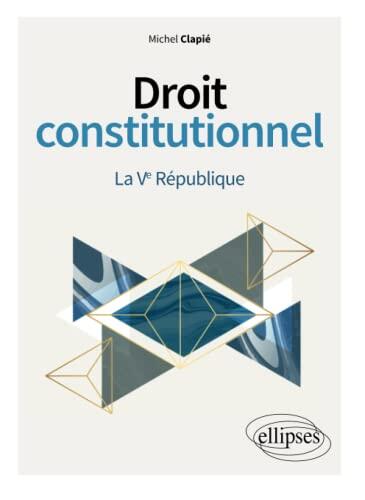
Droit constitutionnel. La Ve République
by
M. Michel Clapié
No ratings yet
Manga
Graphic Novels
Format
Paperback
Pages
378
Language
French
Published
Jan 11, 2022
Publisher
ELLIPSES
ISBN-10
2340063442
ISBN-13
9782340063440
Description
In this insightful exploration of constitutional law, readers are invited to delve into the intricacies of the Fifth Republic in France. The author, M. Michel Clapié, presents a meticulous analysis of the political framework that has shaped contemporary French governance. Through a detailed examination of the constitutional principles, Clapié unravels the complexities underlying the Republic's institutions and the dynamics of power that define them.
Clapié's work stands out for its clarity and depth, making it accessible to both scholars and general readers interested in political science and law. The book addresses pivotal themes such as the separation of powers, the role of the executive, and the influence of the judiciary. The author adeptly contextualizes these elements within historical and sociopolitical developments, illustrating how they interplay to support the fabric of the Republic.
Furthermore, the exploration extends beyond mere legal frameworks, providing readers with a lens through which to understand the broader implications of constitutional arrangements on French society. By addressing contemporary challenges and responses within the constitutional domain, Clapié encourages critical reflection on the efficacy and adaptability of legal institutions.
This comprehensive narrative does not only serve as an academic resource but also as a reflection on the evolution of political thought in France. Clapié's engaging style captivates the reader, making complex legal ideas digestible, and fosters a deeper appreciation of constitutional law's role in shaping democratic ideals.
Clapié's work stands out for its clarity and depth, making it accessible to both scholars and general readers interested in political science and law. The book addresses pivotal themes such as the separation of powers, the role of the executive, and the influence of the judiciary. The author adeptly contextualizes these elements within historical and sociopolitical developments, illustrating how they interplay to support the fabric of the Republic.
Furthermore, the exploration extends beyond mere legal frameworks, providing readers with a lens through which to understand the broader implications of constitutional arrangements on French society. By addressing contemporary challenges and responses within the constitutional domain, Clapié encourages critical reflection on the efficacy and adaptability of legal institutions.
This comprehensive narrative does not only serve as an academic resource but also as a reflection on the evolution of political thought in France. Clapié's engaging style captivates the reader, making complex legal ideas digestible, and fosters a deeper appreciation of constitutional law's role in shaping democratic ideals.
Reviews
Reading Log
No reading logs found
Start tracking your reading progress to see logs here
Add Your First Reading LogNotes
Transaction Log
No transaction logs found
Start tracking your book transactions to see logs here
Add Your First Transaction Log